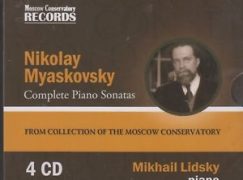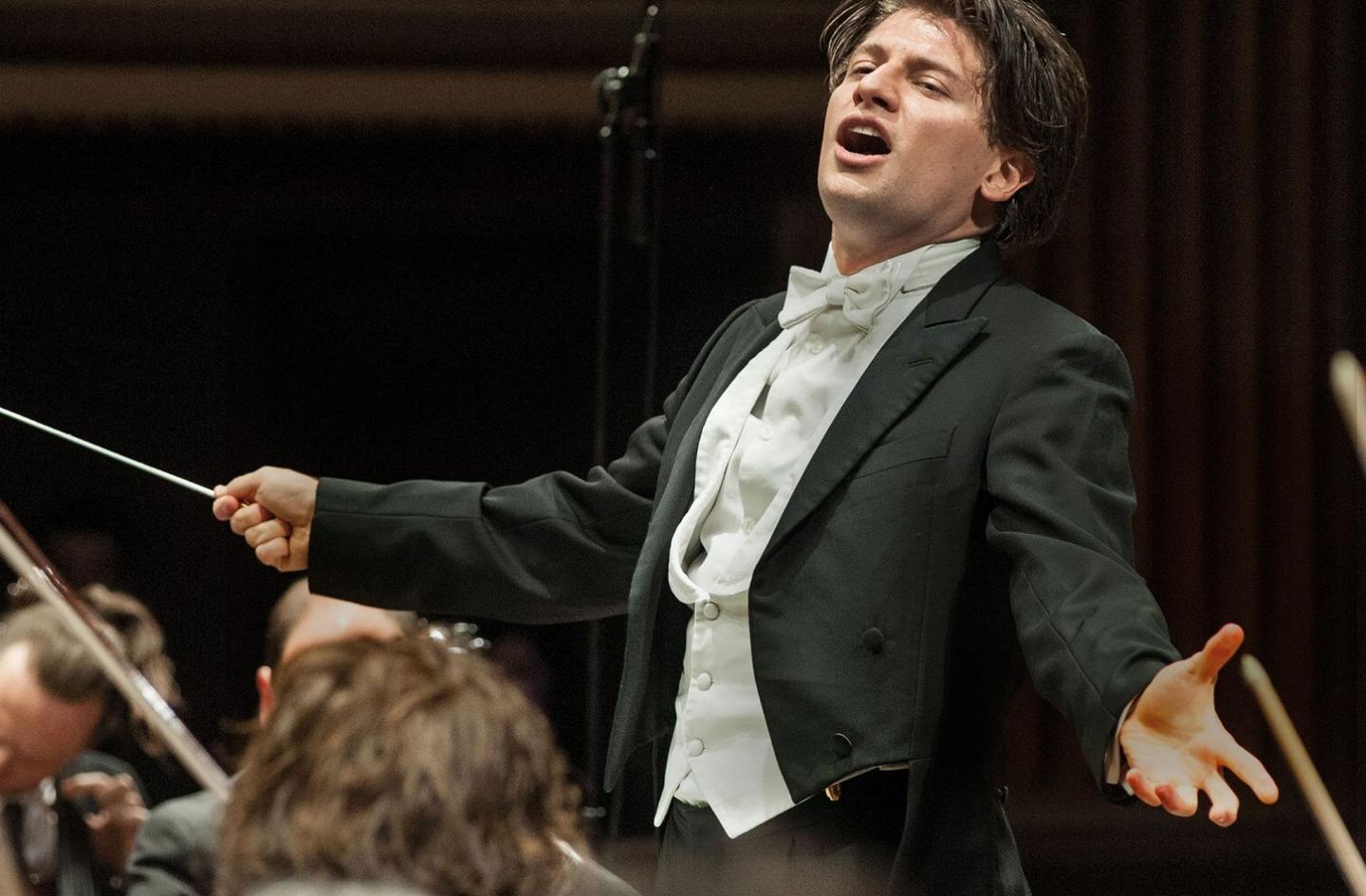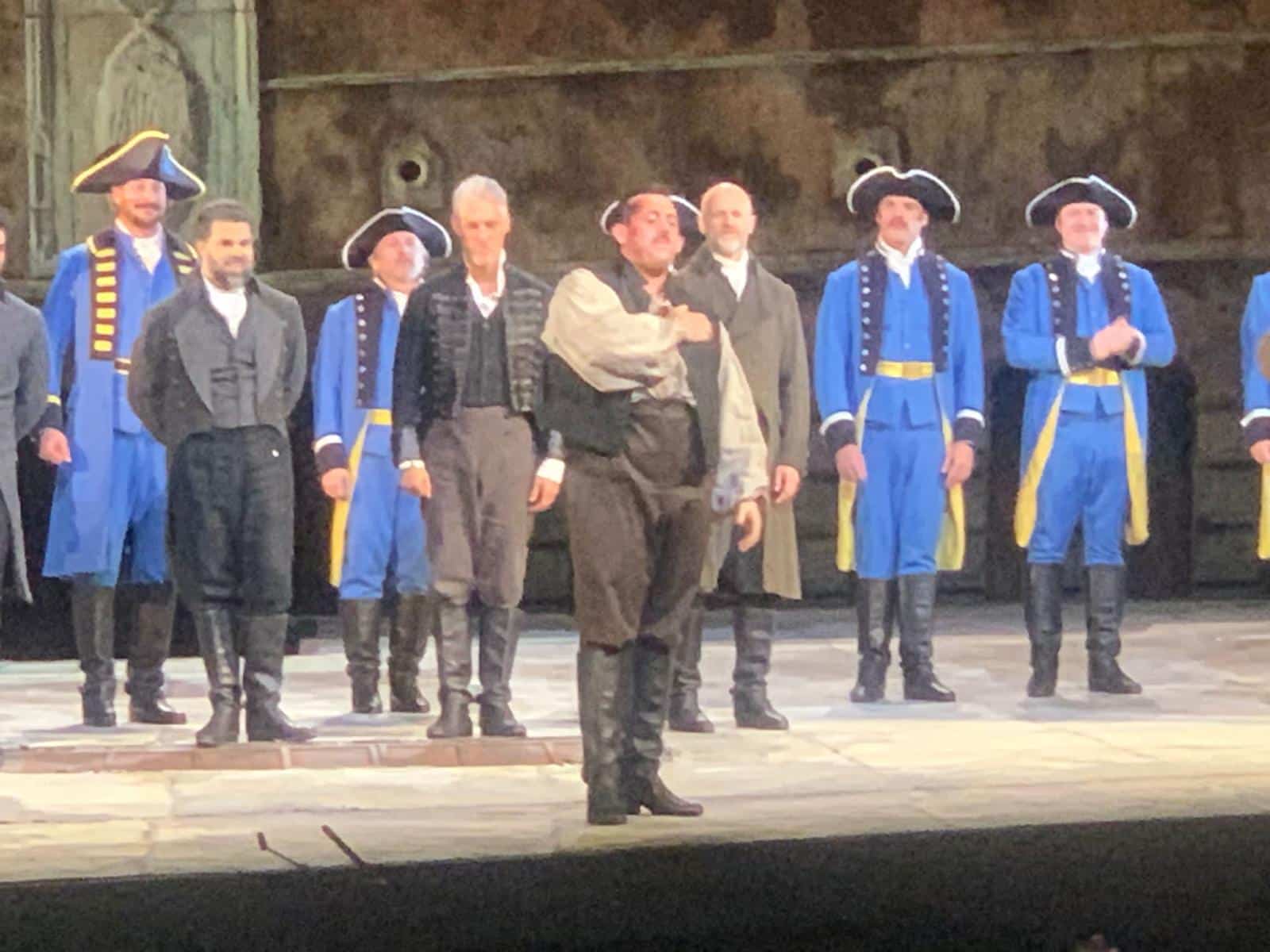The Russian composer no-one seems to know
mainFrom the Lebrecht Album of the Week:

There is no clear western perception of Nikolai Myaskovsky. We think we know Prokofiev and Shostakovich, whether through their music or through their Stalin ordeals. But their senior contemporary barely flickers on our radar even though Stravinsky, among others, held him in high regard.
In a fairly undramatic life, Miaskovsky simply got on with writing …
Read on here.
And here.





So, for all of you [redacted]: what’s your favourite Myaskovsky symphony (besides 6)???
Uncalled for! He’s attempting to promote a Relative unknown. For many people (though of course not You) unknown-ness is an invitation to skip. Our host is throwing in a little drama in an effort to get round that.
?
Not one of the greater postings in the history of logic.
written before “redaction” made in Liz post
My apologies. Serves me right for being a busy-body.
I know Myaskovsky’s music very well, thank you. That was not a sarcastic question. He was, after all, one of the major symphonists of his time, winner of the most Stalin prizes, and recorded by some of the greats (Oistrakh, Rostropovitch, etc.). To say “no one seems to know” Myaskovsky might suggest SD readers need musicologists more than they realize…
I was responding to your gratuitous attack on NL, since removed.
Well said, Liz! The best today Russian cellist plays NM cello concerto and conceder a great piece. Conductor Evgeny Svetlanov championed NM music and in 2014 “Melodia” released selected symphonies.
The Cello Concerto gets a fair shake, deservedly. Rostropovich picked it for his first RCA release in 1956 with Sargent, paired with Saint-Saens 1. Lovely work.
It was the cello concerto that made me sit up and take notice. Love his final symphony (No 27), and the start of the slow movement of symphony No 5 would sound great in a Hammer horror movie. I heard that Shostakovich described him as Russia’s answer to Vaughan Williams. Also, is it Miaskovsky or Myaskovsky?
It’s Мяско́вский . “Miaskovsky” is probably a French transliteration, “Myaskovsky” is English. There are only three syllables: “Mya”, “skov”, and “sky”. The vowel in the first syllable is an ‘a’, but the character used ‘я’ indicates that the preceding ‘m’ is palatalized. For most English speakers, this is most closely by putting an ‘m’ sound in front of the word ‘yeah’.
My observation is that the greater the anti-communist narrative that can be created, the more the West tolerates a Soviet-era composer..
It would be more accurate to say that the US take-up of Russian composers or writers depended heavily on their reputation as dissidents. Mias was denounced (once I think) but he won more Stalin prizes than the others and was hammered less severely. Prok & Shosta were in the dramatic position of being both center-stage and under the gun; also they were the musical standard-bearers in the great patriotic war.
A good example: the really excellent stories and novels of Yuri Trifonov were translated but generally ignored because he remained in the Soviet good graces; I recommend The Old Man (Starets), The House on the Embankment & Another Life (published together). His (Christian) agenda was too subtle to be noticed, in the western game of was he?/wasn’t he? — a dissident. For anyone interested in post WWII Russia he is unforgettable.
How ’bout this: Shostakovich, Prokofiev and (even) Khachaturian were all better.
Sorry, how is Khatchaturian “better” than Myask? Have strong doubts about this one…
Perhaps not the symphonies, but I think the violin and piano concertos are pretty darn good. Just an opinion, not a fact.
“It would be more accurate to say that the US take-up of Russian composers or writers depended heavily on their reputation as dissidents. ”
No, that isn’t more accurate. Tchaikovsky… Russian, not a dissident, still widely loved.
I stand by my observation as written about **Soviet-era** composers.
I was referring to Soviet era composers, and it is more accurate. The more accurate formulation might be — ….the greater the anti-communist narrative … the more the West celebrates (why “tolerates”?) Dissident Soviet era composers.
But do you think there is much interest in Soviet communism these days? Or are you referring to N Korea or Ven or Cuba? The first is a hyper right-wing ethno-nationalist monarchy and the others are far from the form and pressure of anything resembling communism too.
I agree, a under appreciated composer. He is sort of a Russian Hindemith. I first encountered Myaskovsky in the 1980s when I heard his 11th Symphony in B flat minor (great key!) with Moscow Symphony Orchestra and Veronica Dudarova (still have the tape of it I recorded off that radio broadcast). Regardless of what else he wrote, this piece alone is a jewel.
Relying on memory here, but I recall that in his amusing memoirs of his years in the Boston Symphony, “Gentlemen, More Dolce Please,” violinist Harry Ellis Dixon wrote that at his audition Koussevitzky had him sight-read portions of a Miaskovsky symphony, presumably on the (safe) assumption that the usual conservatory graduate on the audition trail would never have had reason to play it or even hear it. I don’t know if today’s auditions even include sight reading, but if they do, Miaskovsky would remain appropriate on the same grounds: few if any would be given an unfair advantage of previous familiarity.
Apart from some piano music, I admit that mostly what I know of Miaskovsky is the cello concerto, and yes, in the Rostropovich recording, which EMI reissued on CD in their Matrix series, coupled with Oistrakh playing the Taneyev Suite — both about as good as string playing on record gets, in my opinion.
Sorry, my bad: it is Harry Ellis DICKSON who wrote the book I mentioned above. In my mind’s ear I must have been hearing the late William Pierce pronounce his name during Boston Pops broadcasts of old in the Fiedler era and wrongly assumed the spelling.
Why should his work be so unknown?
It’s all here –
http://imslp.org/wiki/Category:Myaskovsky,_Nikolay
NM is certainly a great composer whose music bears repeated acquaintance. His style changed dramatically through the years, but never lost its logic, craft, and brooding philosophical character. There are many outstanding works. There is a phenomenal performance of the 13th String Quartet given by the State Borodin SQ. This is actually one of his simplest works.
https://www.youtube.com/watch?v=iJg6DIgGlac&t=12s
There’s a lot of greatness to be found in his cycles of symphonies and quartets.
A glorious composer with a distinctive voice. ‘Scriabin left out in the sun’, wonderfully melancholic. I treasure my complete symphonies set conducted by Svetlanov. No 10, the bronze horseman is a good one, and the very weird no 13. But the ‘art deco Borodin’ Scherzo in no 5 is a particular gem. Some very fine string quartets as well. Great to have the complete piano sonatas (although I think there was a complete Marco Polo set at some point).
My book Nikolay Myaskovsky: the conscience of Russian music was published in 2014 by Rowman and Littlefield in the US, and covers his entire career and music. Hopefully some readers may want to find out more about him, and is available at the usual places such as Amazon.
https://www.amazon.com/Myaskovsky-1941-1945-Wartime-Symphony-Ballad-Symphony/product-reviews/B0020HMN24/ref=cm_cr_dp_d_show_all_btm?ie=UTF8&reviewerType=all_reviews
The Sixth symphony is his greatest work and it is interesting to compare the recordings with the final chorus to the one were it is left out (Svetlanov). Personally, I find his other symphonies and orchestral works – speaking of those that I have listened to – less thrilling. Interestingly, many composers gave either their best or their most personal when writing a 6th: Mahler, Tchaikovsky, Nielsen and Prokofiev, of course, but also Beethoven, and Bruckner, and Sibelius. And why not include Shostakovitch. Not a weak or uninteresting or uninvolved Sixth among all these!
Well he wrote 27 symphonies, several of them are masterpieces, and here I include the 10th, 21st, 26th and 27th. They are all different, from late romantic to modernist, certainly the 27th is his leave-taking and really does need to be heard properly.
Gregor,
Thanks for the post. I look forward to trying these out. I think the 24th has a lot to commend it. It is powerful but not overblown or too long.
I still prefer the 6th, though. Am I allowed to or is the firing squad already at my door?
Of course I meant that the 6th is also a masterpiece in addition to his latter symphonies, and perhaps the 6th is the one which is so individual showing his feelings as an artist and indeed reflecting the despair of the intelligentsia toward the Bolshevik government, and it also reflects on his father’s death at the hands of the Red Guards in 1918.
I am fond of his string quartets. They can be a bit lightweight at times, but the last four are exceptional.
While I have not heard much of his music, he is well-known for having earned the great regard of other composers such as Dmitri Shostakovich. But what about Nicolai Berezowsky? After a hair-raising escape from Soviet Russia, he came under the sponsorship of Koussevitzky, and had very successful career as a violinist, conductor and composer. But émigré composers such as he, and Thomas de Hartmann, were shoved aside by Aaron Copland and his Americans-first cadre, and are now largely forgotten, no matter how great their prior success. Berezowsky was not helped by dying fairly young. But Pierce and Jonas recorded just one of his masterpieces, the Fantasy for two pianos and orchestra.
Zalman,
Thanks for bringing to our attention composers I had never heard of. I will certainly look out for recordings of their music if available.
Tony
David Finkel plays NM cello sonata in concerts and 2nd movement as encore-so wonderful this music.
Nicolas Slonimsky mentions Miaskovsky frequently in his interesting and entertaining book, “Lectionary of Music.” From what I could gather from the Lectionary Miaskovsky wrote a symphony in each of the major and minor keys, earning Slonimsky’s quirky attention and praise.
Additionally, Miaskovsky’s Symphony #19 (opus 46) is written for band, earning him early fame in the symphony for band trivia category.
https://www.nytimes.com/interactive/2019/08/05/travel/south-county-rhode-island-beaches.html?action=click&module=Editors%20Picks&pgtype=Homepage